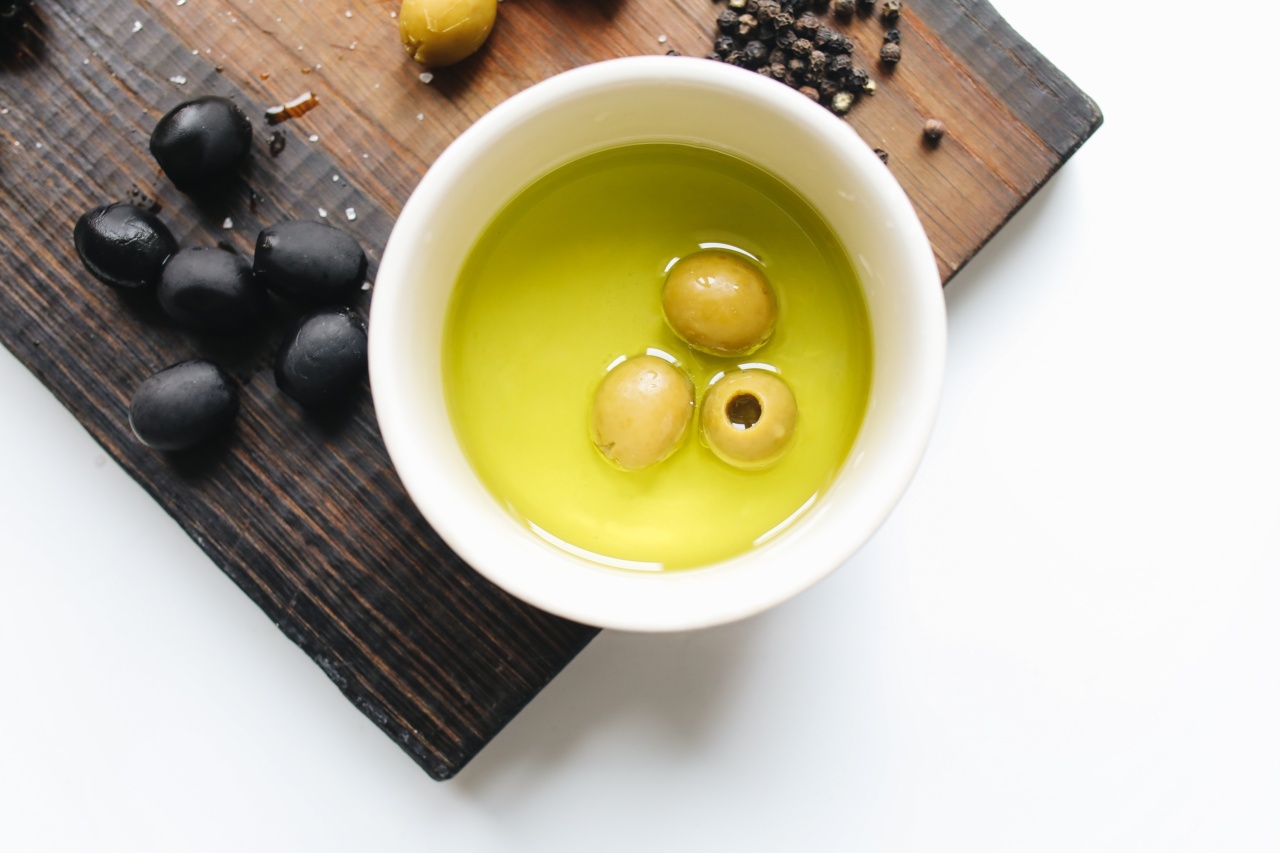Olive oil has long been celebrated for its numerous health benefits, particularly when it comes to heart health. In recent years, research has also highlighted the potential role of olive oil in reducing the risk of stroke.
This article will explore the evidence supporting the link between olive oil consumption and stroke prevention, shedding light on how this versatile oil may contribute to a healthier cardiovascular system.
1. What is Stroke?
A stroke occurs when the blood supply to a part of the brain is interrupted or reduced, leading to the death of brain cells. It is a medical emergency that requires immediate attention as it can result in long-term disability or even be fatal.
2. Types of Stroke
There are two main types of stroke:.
a) Ischemic Stroke: This is the most common type, accounting for around 85% of all strokes. It occurs when a blood clot blocks a blood vessel supplying the brain.
b) Hemorrhagic Stroke: This type of stroke happens when a weakened blood vessel ruptures and bleeds into the brain.
3. The Mediterranean Diet and Olive Oil
The Mediterranean diet, characterized by high consumption of fruits, vegetables, whole grains, legumes, fish, and healthy fats like olive oil, has been associated with a lower risk of cardiovascular diseases.
Olive oil, a staple of the Mediterranean diet, contains high amounts of monounsaturated fatty acids (MUFAs), which have shown beneficial effects on heart health.
4. The Role of Olive Oil in Reducing Stroke Risk
The following scientific evidence supports the potential role of olive oil in reducing the risk of stroke:.
a) Antioxidant and Anti-Inflammatory Properties: Olive oil is rich in antioxidants, such as polyphenols and vitamin E, which help protect cells from oxidative stress and inflammation.
Chronic inflammation and oxidative stress are key contributors to stroke development.
b) Improved Blood Lipid Profiles: Consuming olive oil has been shown to raise levels of high-density lipoprotein (HDL) cholesterol (often referred to as “good” cholesterol) while reducing levels of low-density lipoprotein (LDL) cholesterol (often referred to as “bad” cholesterol”). This favorable lipid profile is associated with a reduced risk of stroke.
c) Blood Pressure Regulation: High blood pressure (hypertension) is a major risk factor for stroke. Studies have indicated that regular consumption of olive oil may help lower blood pressure levels.
The polyphenols present in olive oil contribute to the dilation of blood vessels, promoting better blood flow and reducing the strain on the cardiovascular system.
d) Blood Clot Prevention: Some research suggests that olive oil may have anticoagulant effects, inhibiting the formation of blood clots within blood vessels.
By reducing the likelihood of clot formation, olive oil may help prevent ischemic strokes caused by blood clot blockages.
5. Studies Supporting Olive Oil’s Impact on Stroke Risk
A number of studies have investigated the association between olive oil consumption and stroke risk:.
a) The Three-City Study: This study, including over 7,000 participants aged 65 years and older, found that higher olive oil consumption was associated with a reduced risk of stroke, particularly ischemic stroke.
This protective effect was attributed to the monounsaturated fats present in olive oil.
b) The PREDIMED Trial: This large-scale trial demonstrated that individuals assigned to a Mediterranean diet supplemented with extra-virgin olive oil had a significantly lower risk of stroke compared to those assigned to a low-fat diet. The participants in the olive oil group showed a 40% reduction in stroke risk.
c) The SUN Cohort Study: In this study involving over 40,000 middle-aged adults, participants who consumed olive oil regularly and in higher quantities were found to have a lower risk of stroke compared to those who consumed little or no olive oil.
6. Incorporating Olive Oil into your Diet
Here are some practical tips for incorporating olive oil into your daily diet:.
a) Use olive oil as a dressing for salads.
b) Replace butter or margarine with olive oil when cooking or baking.
c) Drizzle olive oil over cooked vegetables or grilled meats.
d) Enjoy dipping whole-grain bread in extra-virgin olive oil.
7. Cautionary Notes
While olive oil offers potential benefits in reducing stroke risk, it is essential to consider overall dietary patterns and maintain a balanced lifestyle.
It is not a magical solution on its own and should be incorporated into a well-rounded approach to health.
Furthermore, always opt for extra-virgin olive oil, as it undergoes minimal processing and retains a higher concentration of beneficial compounds.
8. Conclusion
The evidence suggesting the potential role of olive oil in reducing stroke risk continues to grow.
The antioxidant and anti-inflammatory properties, blood lipid profile improvements, blood pressure regulation, and potential anti-clotting effects provide a strong foundation for integrating olive oil into a heart-healthy diet. However, it is important to consult with a healthcare professional before making significant dietary changes.





























